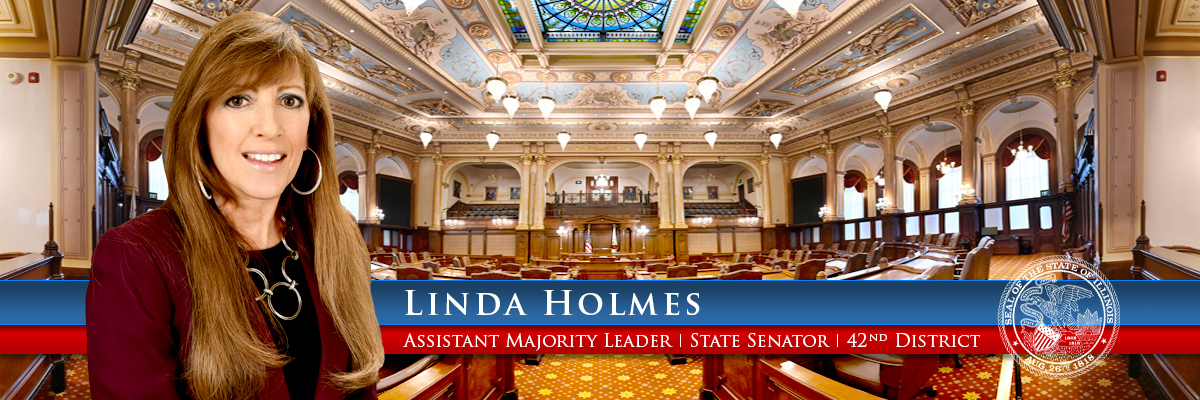Holmes: Small businesses may apply Thursday for second round of BIG Grants
- Details
- Category: New Releases
 AURORA – Small businesses continue to confront financial hardships as the COVID-19 pandemic continues, and Assistant Senate Majority Leader Linda Holmes (D-Aurora) is encouraging business owners to apply for assistance through the second round of Business Interruption Grants.
AURORA – Small businesses continue to confront financial hardships as the COVID-19 pandemic continues, and Assistant Senate Majority Leader Linda Holmes (D-Aurora) is encouraging business owners to apply for assistance through the second round of Business Interruption Grants.
“So many local businesses have faced unprecedented challenges during the COVID-19 pandemic, and I’m pleased we have another round of grants available to help them get back on their feet,” said Holmes. “Our small businesses have been resourceful and flexible in adapting to new safety guidelines, and I hope this will give them the assistance they need to bounce back.”
Holmes: Symptoms or not, please get tested for COVID-19 if you have been exposed
- Details
- Category: New Releases
 If you may have been exposed to someone with COVID-19, getting tested is critical, says Senate Assistant Majority Leader Linda Holmes (D-Aurora).
If you may have been exposed to someone with COVID-19, getting tested is critical, says Senate Assistant Majority Leader Linda Holmes (D-Aurora).
“Scientific studies show even those without symptoms have been linked to virus spread, so testing is vital, particularly for those who believe they may have been exposed,” Holmes said. “To get this pandemic under control, we need as much information as possible on who is transmitting the virus.”
Widespread testing is a key component of the Illinois Department of Public Health’s strategy to combat COVID-19. Since March, Illinois has tested more than 3.8 million COVID-19 specimens and expanded testing to all parts of the state.
Holmes calls for justice for unemployment scam victims
- Details
- Category: New Releases
 AURORA – Nationwide, scammers are targeting those receiving unemployment benefits at this difficult economic time exacerbated by to the coronavirus pandemic. Senate Assistant Majority Leader Linda Holmes (D-Aurora) warns area residents who haven't applied for unemployment benefits but receive a debit card claiming to provide benefits that they could be the target of a scam.
AURORA – Nationwide, scammers are targeting those receiving unemployment benefits at this difficult economic time exacerbated by to the coronavirus pandemic. Senate Assistant Majority Leader Linda Holmes (D-Aurora) warns area residents who haven't applied for unemployment benefits but receive a debit card claiming to provide benefits that they could be the target of a scam.
“It’s shocking in the midst of these crises to learn scammers are targeting vulnerable residents and their unemployment benefits,” Holmes said. “To bring scammers to justice, IDES is aggressively pursuing fraudsters filing false claims.”
Holmes announces $1.59 million in road and bridge improvements this year for the 42nd District
- Details
- Category: New Releases
 AURORA – Assistant Senate Majority Leader Linda Holmes (D-Aurora) is pleased to see nearly $1.6 million in Aurora-area road construction projects slated for this year as part of the state’s ongoing multi-year construction plan.
AURORA – Assistant Senate Majority Leader Linda Holmes (D-Aurora) is pleased to see nearly $1.6 million in Aurora-area road construction projects slated for this year as part of the state’s ongoing multi-year construction plan.
“This is the right time to see improvements to area infrastructure,” Holmes said. “These Rebuild Illinois projects will create new, well-paying jobs when we need them most; they will also facilitate commerce and transportation, while making needed updates to roads that will improve public safety.”
More Articles …
Page 44 of 84




